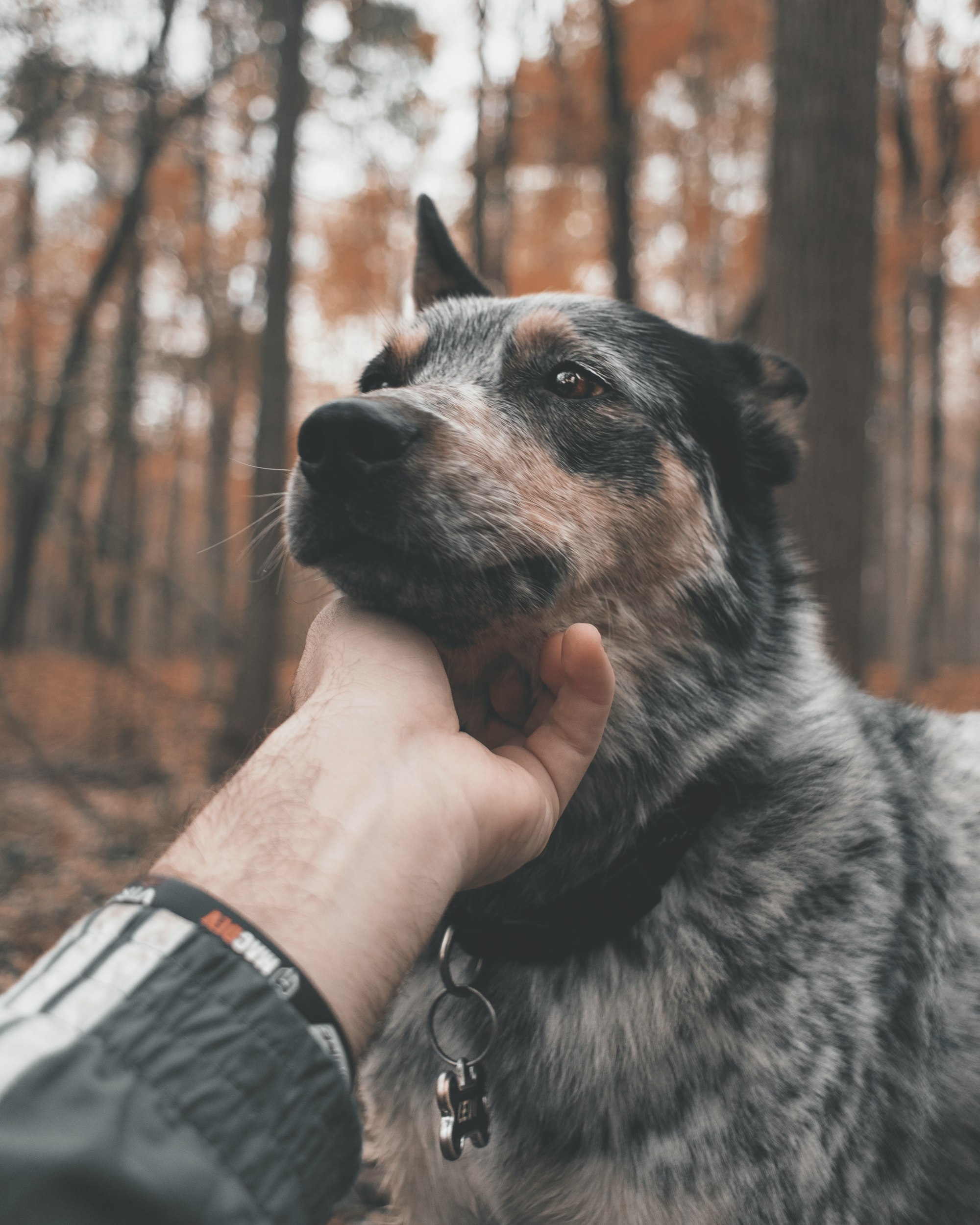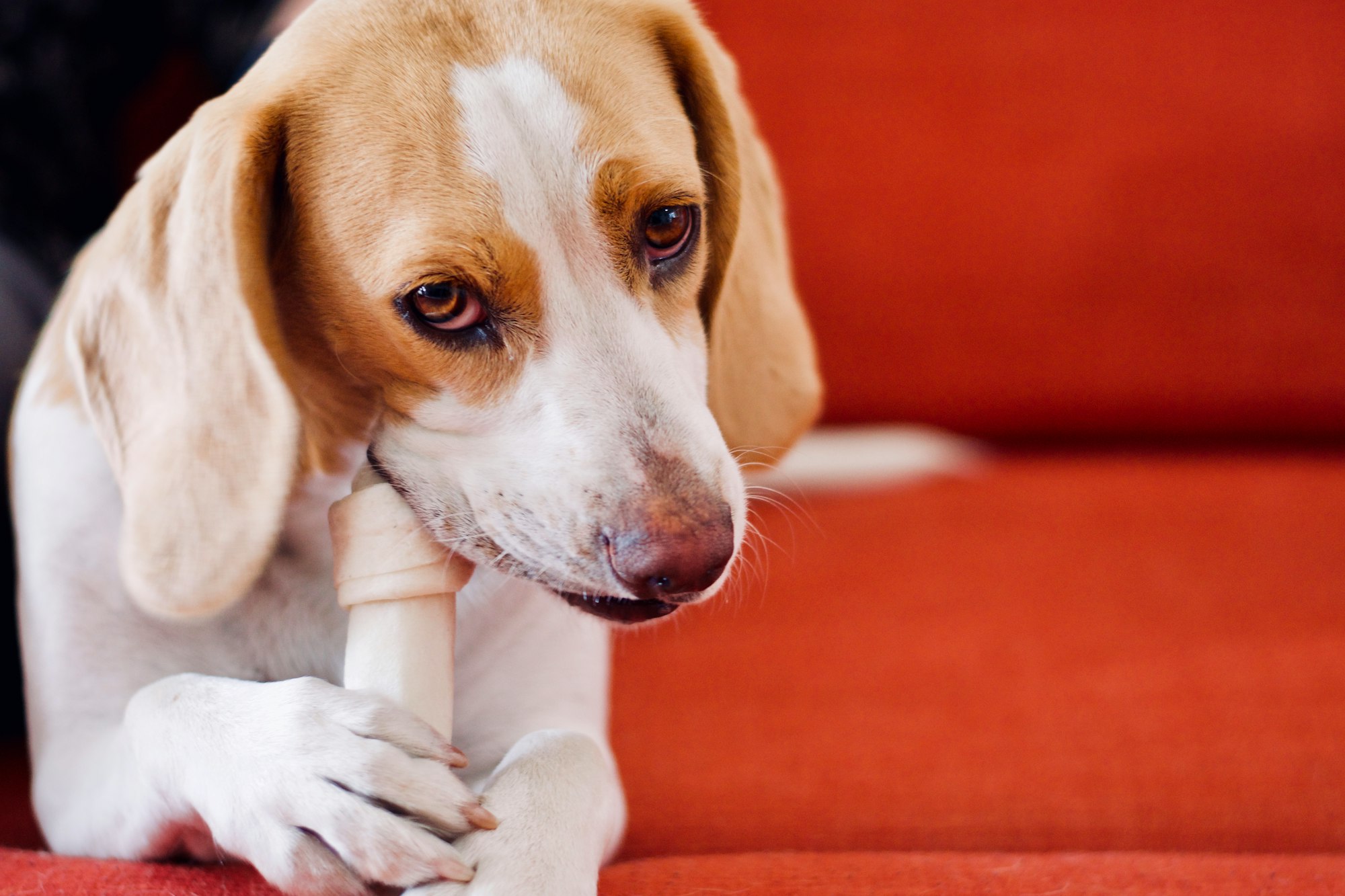An impacted hair follicle in dogs occurs when a hair follicle is blocked or obstructed by a build-up of oil, dirt, or dead skin cells. This causes the hair to stop growing or grow abnormally, leading to inflammation, redness, and discomfort for the dog.
The condition is common in dog breeds with long or curly hair, such as cocker spaniels and poodles, although it sometimes occurs in any species.
If your dog has an impacted hair follicle, it is crucial to take action as soon as possible to prevent the condition from causing discomfort or spreading infection to the dog.

Signs of an Impacted Hair Follicle in Dogs
An impacted hair follicle in dogs may present a range of symptoms that include:
- Skin Irritation and Swelling – and impacted hair follicles may cause skin irritation to the dog, resulting in itching, scratching, and redness. The affected area may appear swollen or inflamed.
- Pain - the affected area may be painful when you touch it, or sometimes the dog may struggle walking or doing everyday activities to indicate underlying pain.
- Hair loss- One of the significant signs of an impacted hair follicle in dogs is hair loss. You will notice that the impacted hair follicles leave bald patches on the dog's skin.
- Pus-filled Bumps- If left unattended, impacted hair follicles can lead to pus-filled spots forming, which may rupture and discharge smelly fluid.
What Causes Folliculitis in Dogs?
Some of the most common causes of Folliculitis in dogs include:
Bacterial infections such as staphylococcus or pseudomonas invade the hair follicles, causing infection and inflammation.
Another cause of Folliculitis in dogs is a result of fungal infections like ringworms or parasites such as fleas, ticks, and mites, which can cause skin irritation and lead to Folliculitis. Overgrown bacteria in the body can cause pneumonia or sepsis, or the dog may develop an abscessed hair follicle on their tail.
Some dogs also develop Folliculitis due to allergic reactions to some dog foods, medication, or environmental factors.
Hormonal imbalances such as hypothyroidism in dogs can lead to skin problems and Folliculitis.
Injury to the skin or the hair follicles during grooming can also lead to skin problems or Folliculitis in dogs. Sometimes poor hygiene conditions, such as grooming, can cause an accumulation of bacteria on the skin and hair, further causing Folliculitis in the dogs.
Is Folliculitis Common in Some Dog Breeds?
Yes, Folliculitis is more common in some dog breeds than others. Some dog breeds may be predisposed to developing Folliculitis due to their skin and hair types or their genetics.
Here are some of the dog breeds that are more prone to Folliculitis.
Bulldogs are prone to skin-fold dermatitis, which can lead to Folliculitis because of the nature of their hairs.
Boxers - Boxers are susceptible to bacterial infections that can cause Folliculitis due to their playful and rowdy nature. They quickly get the bacteria if they are bred in an unhygienic environment. The dogs also have a lot of hair around their faces and eyes, which can accumulate bacteria if not groomed regularly.
Rottweilers - Rottweilers are known to have a sensitive stomach more than other breeds. They are particularly susceptible to dietary skin reactions if not given the recommended diet. They will quickly contact Folliculitis.
German shepherds - They are usually at high-risk for skin allergies, mainly parasitic, due to their thick double-coat skin. They also have a food hypersensitivity that makes them predisposed to Folliculitis.

How to Diagnose Folliculitis in Dogs
If you suspect that your dog may be suffering from Folliculitis, you can seek veterinary care to diagnose the skin condition properly.
Here are some common steps you can use to diagnose Folliculitis in dogs.
1. Physical Examination
This is the first step in the diagnosis of Folliculitis in your dog. If you use vet services, they can inspect the affected areas for signs of redness, swelling, bumps, or pustules on the dogs. They may also ask about your dog's medical history and lifestyle to ascertain the potential causes.
2. Skin Scraping
You can perform a skin scraping if you suspect the Folliculitis may be caused by parasites, such as mites or fleas. The vet may take a small sample skin cell of the affected area and examine it using a microscope to check for infection.
3. Allergy Testing
The vet may test your dog for allergy reactions if you suspect the Folliculitis results from allergies. They may check for specific allergens in the bloodstream or do an intradermal skin test on your dog to prevent the allergy.
4. Skin Culture
Skin culture involves taking a swab of the affected area and doing a lab check to identify the specific bacteria or fungus causing the infection.
5. Biopsy
You can also do a biopsy if you suspect your dog is ailing from a more severe condition, such as an autoimmune disease. The vet will take a small sample of your dog's skin tissue from the affected area and examine it under a microscope to check for abnormalities and other signs of inflammation.
How to Treat Folliculitis in Dogs
Folliculitis in dogs can cause discomfort and irritation if not treated with urgency. Here are some standard treatment options that veterinarians may recommend for Folliculitis in dogs:
Topical Medications
Topical medication is ideal for mild Folliculitis. You can use topical medications such as antibiotics or antifungal creams to clear the infection. You can apply the drugs directly to the affected areas.
Parasite Control
If the diagnosis indicates parasite infection, you can apply parasite control measures, such as ticks or oral flea medications, to manage the illness.
Allergy Management
Folliculitis caused by allergies can be managed through diet changes, eliminating potential environmental allergens, or using allergen medications to address the problem.
Surgery
Though this rarely occurs, your vet may recommend surgery to remove the infected or inflamed tissue from the affected area.
Can I Prevent My Dog from Getting Folliculitis?
Yes, you can prevent your dog from getting Folliculitis through simple home remedies such as grooming and proper nutrition.
Folliculitis is a common skin condition in dogs caused by various factors, like bacterial or fungal infections. There are steps you can take to prevent Folliculitis in dogs. They include:
Regular Grooming
Regular grooming can help keep your dog from Folliculitis. It doesn't have to be intensive cleaning, but you can maintain the dog's fur and bathe it regularly.
Proper Nutrition
Proper nutrition is essential for maintaining healthy skin and coat. Feed your dog a balanced diet appropriate for age, breed, and activity level. You can add fresh water to keep the dog's skin hydrated.
Allergy Management
Work with your veterinarian to identify potential allergy triggers in your dog and monitor your dog's diet to keep the allergies away.
This can include changing your dog's diet, using allergy medications or immunotherapy, and eliminating potential environmental allergens.
Parasite Control
Most dog parasites include fleas, ticks, and mites, which can contribute to the development of Folliculitis. Use recommended parasite controls to keep the parasites at bay. Also, keep your dog's environment clean and free from parasites by vacuuming regularly and treating bedding and furniture with flea and tick sprays.
Fur Versus Hair Dogs
Hair and fur have the same components but have notable differences in dog maintenance and care.
Fur is shorter and denser than hair, but sheds more frequently. Most dogs have fur rather than hair, except for breeds such as poodles, Yorkshire Terriers, and Maltese, which have hair.
The general difference comes in maintenance. Fur is short and sheds off more frequently, so less maintenance is needed to groom the dog. Dogs with hair require more care, including regular trimming and brushing.
If you are getting a dog with hair, it is vital to be aware of the extra grooming and maintenance that may be required.

Common Fur Issues in Dogs
Some of the common fur issues in dogs include:
- Shedding. While fur is easy to maintain, fur dogs shed often. Excessive shedding, however, can be an upcoming health issue or poor dog nutrition.
- Matting. Matting occurs when the fur becomes tangled and knotted, making the dog uncomfortable.
- Dry Skin. Dry skin is a common occurrence in fur dogs and is primarily a result of poor nutrition.
How To Maintain Healthy Skin in Dogs
Managing healthy skin for your pup is one of the ways to avoid several conditions that would make them uncomfortable.
Here are some essential tips to help keep your dog's skin healthy:
- Use dog-friendly grooming kits and products that are specifically designed for dogs. You can consult your vet to recommend dog-friendly kits.
- Avoid over-bathing your dogs, as soaps strip off their natural oils. A lack of oils on the dog's skin may cause skin irritation.
- Maintain routine vet checkups to help identify and treat skin issues much earlier.
Final Thoughts
If you suspect your dog has an impacted hair follicle, don't self-diagnose and treat them at home without veterinary consultation, as it can cause further complications. Always take them to a vet for a proper examination and treatment.
Folliculitis in dogs doesn't look as serious from the outside, but it can be fatal if not given the best medical attention the dog needs. Having professional medical consultations can help prevent infections even in the future or even more harm to the dog.
Additionally, most dog breeds are prone to Folliculitis due to poor hygiene or environmental conditions. Maintain good grooming habits for your dogs to help prevent impacted hair follicles and other fur issues.
Get more expert advice on pet-parenting by visiting the Off Leash blog at TryFi.com.
TryFi's The Fi Dog Collar is a must-have for any pet parent, it's a GPS tracking collar that helps you keep tabs on your dog's location, activity, and sleep patterns, and alerts you if they escape your backyard. Try the Fi Dog Collar today!

